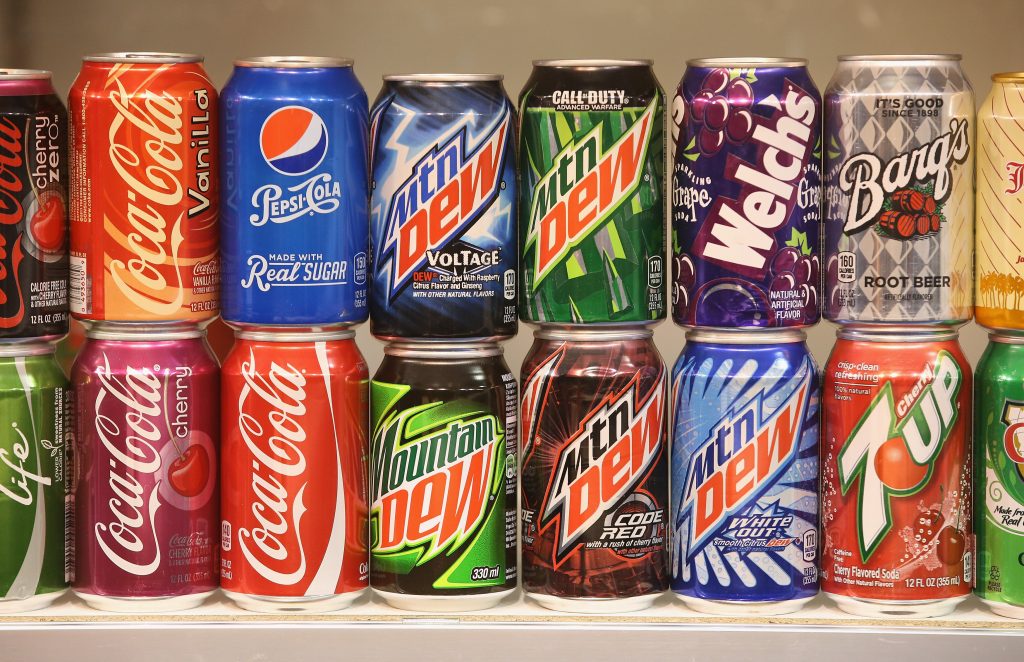
This podcast episode talks about the major public health issues of obesity and diabetes and what could be done to solve them. The main focus lies on the sin tax on sugary drinks, or sugar-sweetened beverages, which was introduced in the USA in Berkeley, California in 2014. It explores what a sin tax is in general and its mechanics, while then diving deeper into the benefits but also possible downfalls of this instrument when it comes to tackling these public health issues, such as regressivity or paternalism.
Sources:
Allcot, H., Lockwood, B. & Taubinsky, D. (2019). Regressive Sin Taxes with an Application to the Optimal Soda Tax. The Quarterly Journal of Economics, vol 134(3), 1557 – 1626
Barry, C., Niederdeppe, J. & Gollust, S. (2013). Taxes on Sugar-Sweetened Beverages – Results from a 2011 National Public Opinion Survey. American Journal of Preventive Medicine, vol 44(2), 158 – 163
Buhler, S., Raine K., Arango, M., Pellerin, S. & Neary, N. (2013). Building a Strategy for Obesity Prevention One Piece at a Time: The Case of Sugar-Sweetened Beverage Taxation. Canadian Journal of Diabetes, vol 37, 97-102
Fichera, E., Mora, T., Lopez-Valcarel, B. & Roche, D. (2021). How do consumers respond to “sin taxes”? New evidence from a tax on sugary drinks. Social Science & Medecine, vol 274, 113799
Fletcher, J., Frisvold, D. & Tefft, N. (2010). The effects of soft drink taxes on child and adolescent consumption and weight outcomes. Journal of Public Economics 94 (2010) 967 – 974
Haavio, M. & Kotakorpi, K. (2011). The political economy of sin taxes. European Economic Review 55 (2011) 575 – 594
Long, M., Gortmaker, S., Ward, Z., Resch, S., Moodie, M., Sacks, G., Swinburn, B., Carter, R. & Wang, C. (2015). Cost Effectiveness of a Sugar-Sweetened Beverage Excise Tax in the U.S. American Journal of Preventive Medicine, vol 49(1), 112 – 123
O’Donoghue, T. & Rabin, M. (2006). Optimal sin taxes. Journal of Public Economics 90 (2006) 1825 – 1849
O’Donoghue, T., & Rabin, M. (2003). Studying Optimal Paternalism, Illustrated by a Model of Sin Taxes. The American Economic Review,93(2), 186-191. Retrieved June 11, 2021, from http://www.jstor.org/stable/3132222
Ohri-Vachaspati, P., DeWeese, R. S., Acciai, F., DeLia, D., Tulloch, D., Tong, D., Lorts, C., & Yedidia, M. (2019). Healthy Food Access in Low-Income High-Minority Communities: A Longitudinal Assessment-2009-2017. International journal of environmental research and public health, 16(13), 2354. https://doi.org/10.3390/ijerph16132354
World Health Organization WHO. (2017). Taxes on sugary drinks: Why do it?
https://econofact.org/should-governments-tax-sugary-drinks, accessed on May 25th
https://www.pbs.org/newshour/economy/making-sense/how-taxing-sugary-drinks-affects-a-communitys-health-and-economy accessed on May 25th
https://www.coca-colacompany.com/faqs/how-much-sugar-is-in-coca-cola accessed on June 5th
Title picture: https://www.statnews.com/2016/10/24/hospitals-selling-sugary-drinks/ accessed on June 11th
Title music: self-composed (by Ronia Palit)
Recent Comments